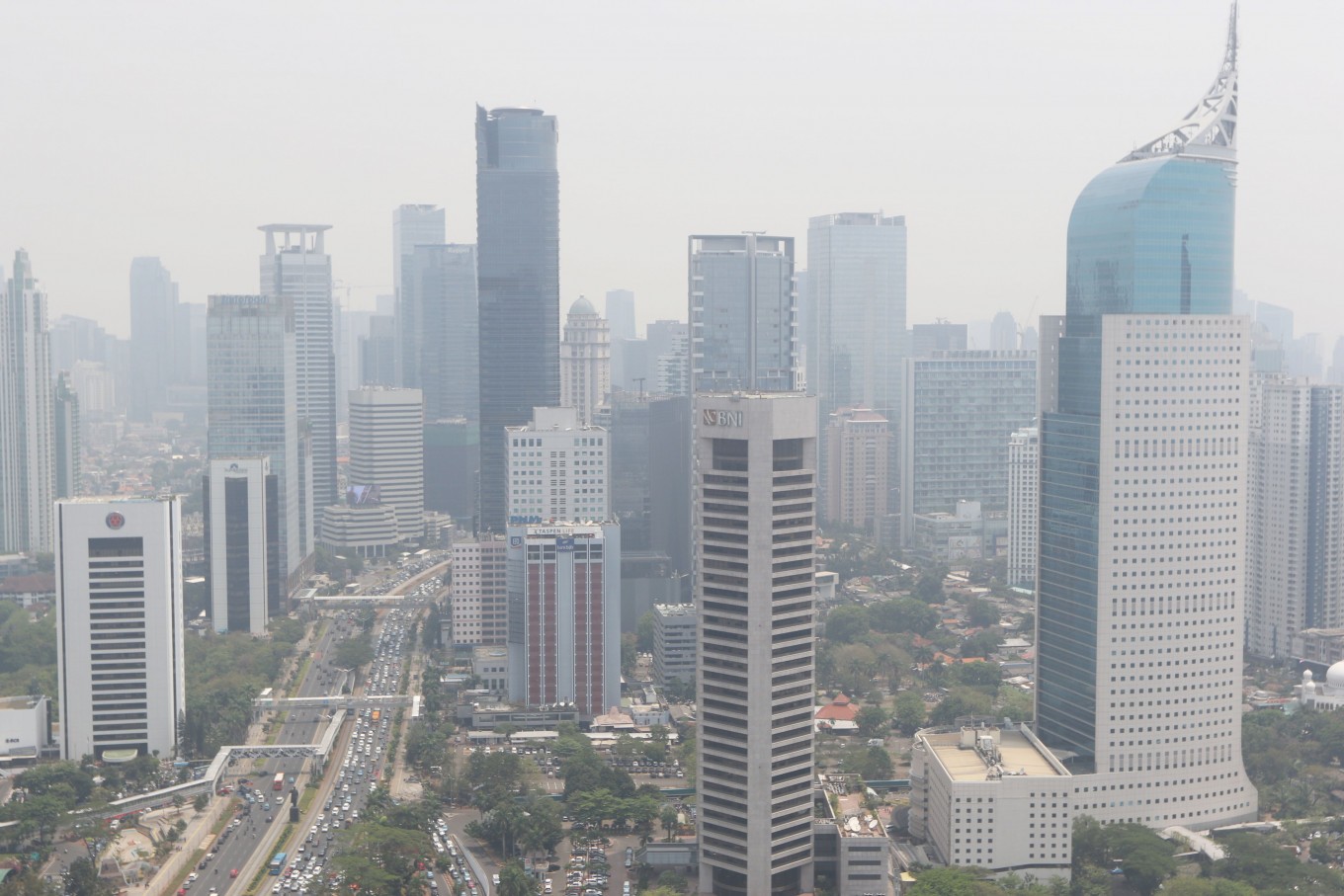Popular Reads
Top Results
Can't find what you're looking for?
View all search resultsPopular Reads
Top Results
Can't find what you're looking for?
View all search resultsBusinesses, big and small, say economy in bad shape: Survey
The majority of business players, from large companies to small enterprises, believe Indonesia’s economy is in a bad shape, and they believe the government could have done better to deal with COVID-19.
Change text size
Gift Premium Articles
to Anyone
T
he majority of business players, from large companies to micro, small and medium enterprises (MSMEs), are of the view that Indonesia’s economy is in a bad shape, a new survey shows.
Negative sentiment is most pronounced among big businesses, with 73.5 percent of them saying the economy is in a poor condition, according to the survey by Indikator.
The public opinion pollster questioned 1,176 respondents in nine provinces from June 29 to July 11.
Among the micro and small enterprises, 60.6 percent and 69 percent of the respondents surveyed, respectively, held a similarly bleak view.
According to the survey, the businesses’ negative view on the economy stemmed from issues such as the sluggish global economy, the difficulty to get a project or order, as well as high operational costs and rising raw material costs during the pandemic.
“Businesspeople tend to see the central government as having handled COVID-19-related issues poorly,” Burhanudin Muhtadi, the executive director of Indikator, said in a virtual briefing on Thursday.
The COVID-19 pandemic has slowed Indonesia’s economic growth, with Southeast Asia’s largest economy growing by 2.97 percent year-on-year (yoy) in the first quarter this year, the lowest rate in 21 years.
Bank Indonesia (BI) has forecast that domestic economic growth will contract by 4.8 percent year-on-year in the second quarter of 2020. The Finance Ministry expects the country to fall into recession in the third quarter of the year.
Meanwhile, the government has allocated Rp 695.2 trillion (US$47.5 billion) from the state budget for its COVID-19 response to strengthen the healthcare system and boost economic activity. It launched a new team on Monday to tackle the public health and the economic aspects of the pandemic, while aiming to speed up the disbursement of the stimulus funds.
Read also: Don’t ‘misinterpret new normal’: Govt expects new team to meet health, economic goals
As of Tuesday, the government has only disbursed 9.59 percent of the total Rp 123.46 trillion earmarked to aid MSMEs during the pandemic, Cooperatives and Small and Medium Enterprises Ministry data show.
Meanwhile, according to Finance Ministry data as of June 29, the government has only spent 10.14 percent of the Rp 120.6 trillion allocated to tax incentives, including for businesses.
Among those in hard-hit sectors, such as retail, wholesale and the automotive industry, a particularly high share of 81.4 percent expressed negative views on the economy.
“In the sectors of fisheries and construction, the share of those who said the economy was bad was lower than in other sectors, but it was still the majority,” Burhanudin said.
Despite a surge in June, national car sales only reached 260,933 units during the first half of the year, a plunge of around 46 percent from the same period last year, according to Association of Indonesian Automotive Manufacturers (Gaikindo) data compiled by diversified conglomerate PT Astra International.
The majority of the companies also stated that the government should reopen the economy and phase out restrictions, the survey found.
Since the government gradually reopened the economy in June, Indonesia surpassed China in its total number of COVID-19 cases on July 18. It logged 1,906 new confirmed cases on Thursday, bringing the total number of infections nationwide to 93,657.
Read also: Administrative issues hamper COVID-19 budget disbursement: Sri Mulyani
Yugi Prayanto, the deputy chairman of the Indonesian Chamber of Commerce and Industry (Kadin), said the government could reopen the national economy while implementing COVID-19 protocols, because businesses could not rely on overseas markets yet, especially in the fisheries sector.
“We do not know how long we can survive the current condition,” said Yugi. “Thus, the only way is to optimize the domestic market.”
Aviliani, an economist at the Institute for Development of Economics and Finance (Indef), said the government should have disbursed 50 percent of the COVID-19 stimulus package by June to cushion the pandemic’s impact on the economy.
“Under the current condition, the government should [increase] its spending, because the private sector cannot,” said Aviliani, adding that the slow disbursement indicated a business-as-usual approach.
According to the Finance Ministry, state spending totaled Rp 1.06 quadrillion in the first half, a 3.3 percent increase from the same period last year and equal to 39 percent of this year’s target.










